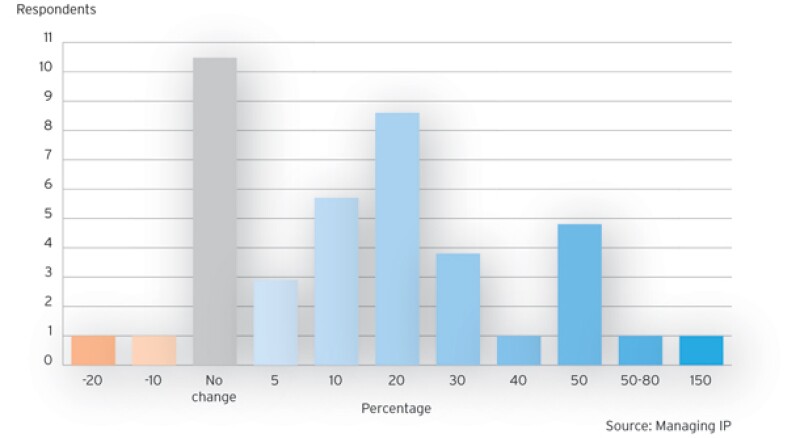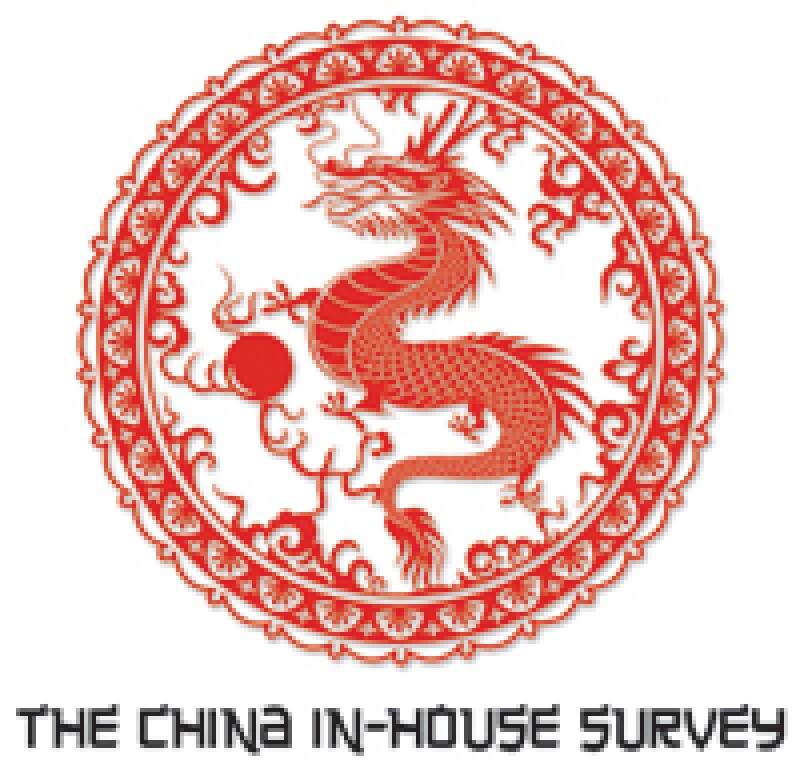How much do you expect your foreign filing budget to grow next year? |

|

The 2012 Chinese in-house survey was conducted at Managing IP's third IP Forum for Chinese IP counsel in Beijing, which was attended by more than 400 companies. The results underscore the increase in Chinese outbound work, revealing much about the types of companies making the move overseas and how they manage their IP portfolios. Four out of five of the 130 respondents said their budget for protecting IP rights abroad had increased in the past year, with some saying it had more than doubled (see chart, above).
There is no single profile that fits the Chinese companies looking to expand overseas; they come from a wide variety of industries and they structure their IP in a range of ways. However, the data and subsequent interviews do reveal some common themes.
Chinese businesses contemplating overseas expansion are cautious and diligent in the way they manage their IP. What sets them apart from peers in more developed economies is a particularly strong emphasis on the need for preventative measures and research that allows them to anticipate problems and minimise litigation risks. Chinese companies also seek external counsel who understand their business goals, and that the legal work is just one part of a larger strategy.
Analysis of the results of the survey, the raw data and case studies with companies ZTE and JK Sucralose are available at the links below. The first is free to access but you must be a subscriber to see the data and the case studies.
As ever, there is discussion of the results on the Managing IP Twitter account. Use the hash tag #MIPChinaSurvey. Please tell us your opinion on China and its IP either there or using the comment button at the top of this story.
We are also preparing the survey for next year, which will be used at the 2013 Beijing and Shanghai events. If there are any questions you think would be interesting to add to the survey, please email us at mip@managingip.com. Anyone suggesting a question will receive free access to the sections of the survey otherwise only available to subscribers.











